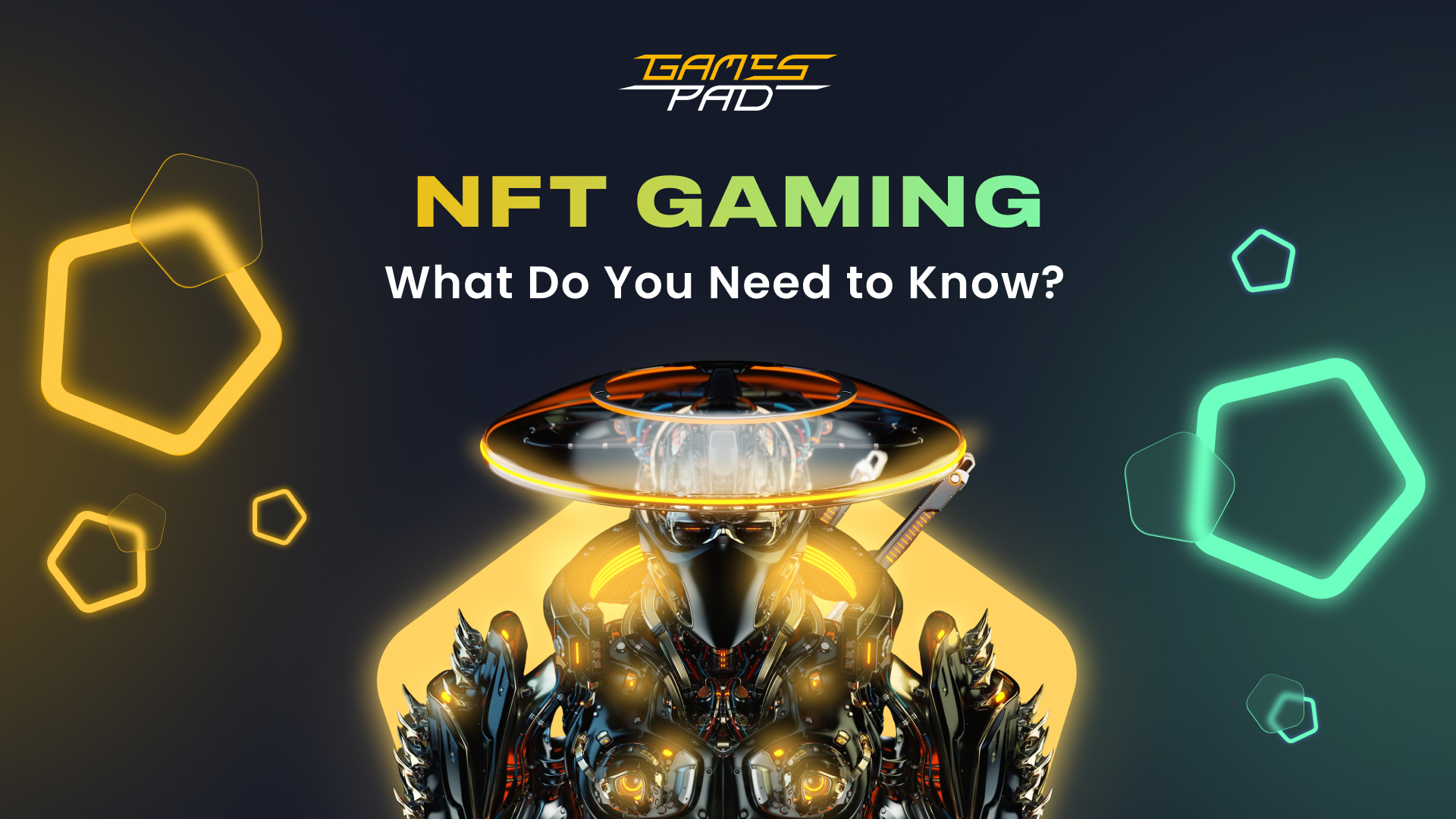
Gaming and technology always seem to find a way to influence each other. While early-years gaming logic and hardware played a significant part in developing the modern computer, the emerging Web 3 and NFT games are now transforming the gaming industry for good.
With virtual reality assuring its domain in the gaming dimension, it is no surprise that blockchain, cryptocurrency, and NFT tech would soon find their place in gaming as well. Non-fungible tokens, or NFTs, are one-of-a-kind digital assets that are impossible to replace, as their properties are encrypted on a blockchain; meaning that no one can alter their data. The blockchain also creates a digital trail to verify the NFTs ownership and any transactions related to them.
NFTs experienced an investment surge throughout 2021, as many artists used this technology to sell the rights to the original versions of their digital art. The status created by the legitimate artwork scarcity caught the attention of several audiences, especially celebrities and public personalities. Even the first tweet ever posted made it to the NFT marketplaces.
By 2022, specialists predict that the new NFT trend will revolve around gaming. Gamers have been buying, selling, and trading in-game and game-related items for quite some time, but now NFTs seems to offer a safer option to market such collectibles. Do you think to mint your own collection? Look the differences between polygon vs solana and other networks.
An NFT can be described as A digital asset can be either in-game assets or memes and GIFs. . The NFTs players earn in games are theirs and they can be exchanged or sold later when they become rarer and more valuable.
NFT games are not like virtual collectibles we can keep in our wallets. These games involve NFTs in their rules, mechanisms, or player interactions. An NFT game might have a unique avatar or character, and virtual items such as the weapons could also be NFTs.
To make profits, players can trade or swap NFTs with each other. NFT players have a new way to make money from NFT games. This is called the play-to earn model. By implementing rules and conditions within a smart contract, the NFT game can be created.
Gamers are already familiar with earning money and trading items while playing. There are in-game marketplaces and external platforms that allow the players to purchase and trade collectibles, so they can use them in the game, buy them as an investment or exchange them for real money.
However, only a few game options offer legitimate in-game marketplaces like Tibia; most transactions still occur outside of regulated platforms as there are more options for articles. Without regulation, there is no standard for pricing, and those transactions lack security for both the seller and the buyer.
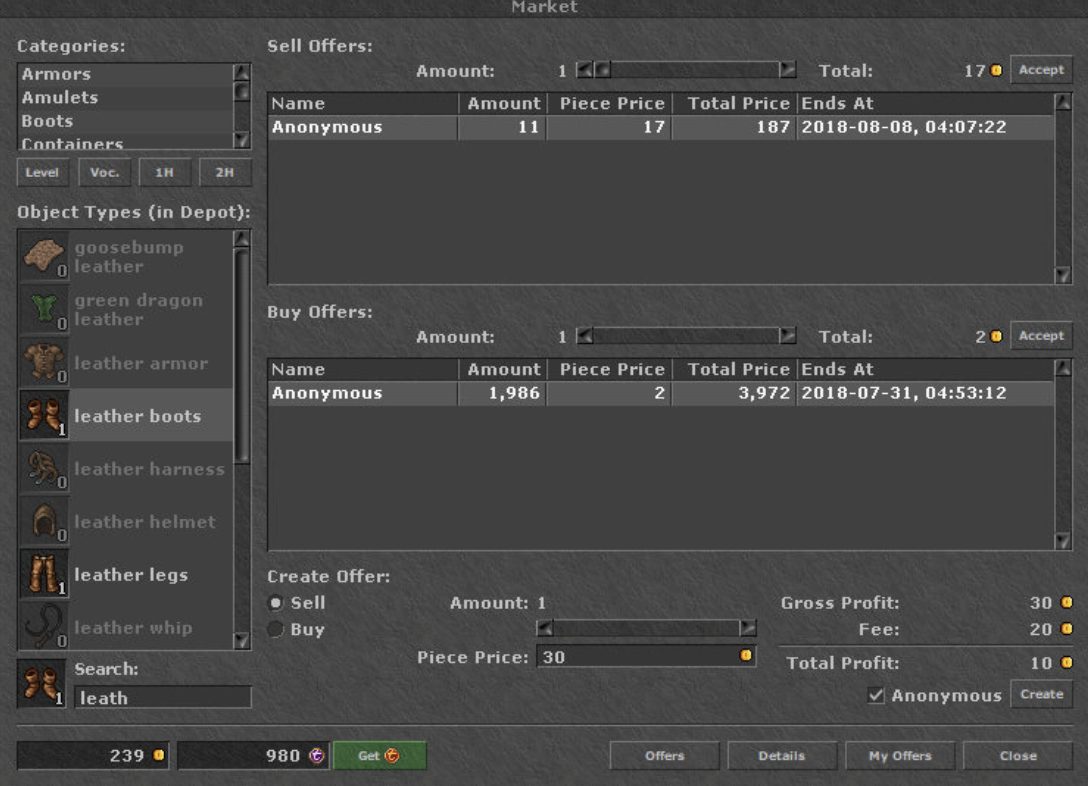
Tibia’s in-game marketplace. Source: Tibia
NFTs can come in handy to solve this marketplace dilemma. With an in-game or external NFT-based marketplace, all transactions materialize upon smart contracts, self-executing codes in which transactions are trackable and irreversible. In short, the NFT technology guarantees that the buyer will pay and the seller will deliver the acquired good.
This dynamic also incentives game developing companies to explore this profitable market selling in-game items as NFTs. As stated before, transforming a rare item into an NFT means that piece is unique, so players need to hurry to guarantee the purchase of such a scarce object.
NFTs in-game are another way to generate income from NFT gaming. Instead of fungible tokens like Axie Infinity’s SLP, in-game NFTs let users earn NFTs that can be used to collect items.
Different collectible items have different value depending on their cosmetics or rarity. CryptoKitties is one example of an in-game NFT. They are entirely dependent on the collectibility and availability of NFTs in-game. NFT games of the future offer both play-to earn models and in-game NFTs.
Besides providing more security, NFTs bring many valuable benefits to the gaming industry, boosting the deals for both gamers and developers.
The players will gain more control over articles sold, buy sold-out kits from other gamers, and even profit from an items’ resale. Soon, it might be possible for users to create their own customized NFTs for their favorite games if publishers become comfortable enough to share a percentage of IP ownership with the audience.
On the customization topic, with the expansion of the NFT market, new and enhanced NFTs will be available for use in the game and to collect game-related digital assets. Gamers and enthusiasts have been collecting pieces from gaming history for decades, so rare and retro goodies have an unquestionable audience.
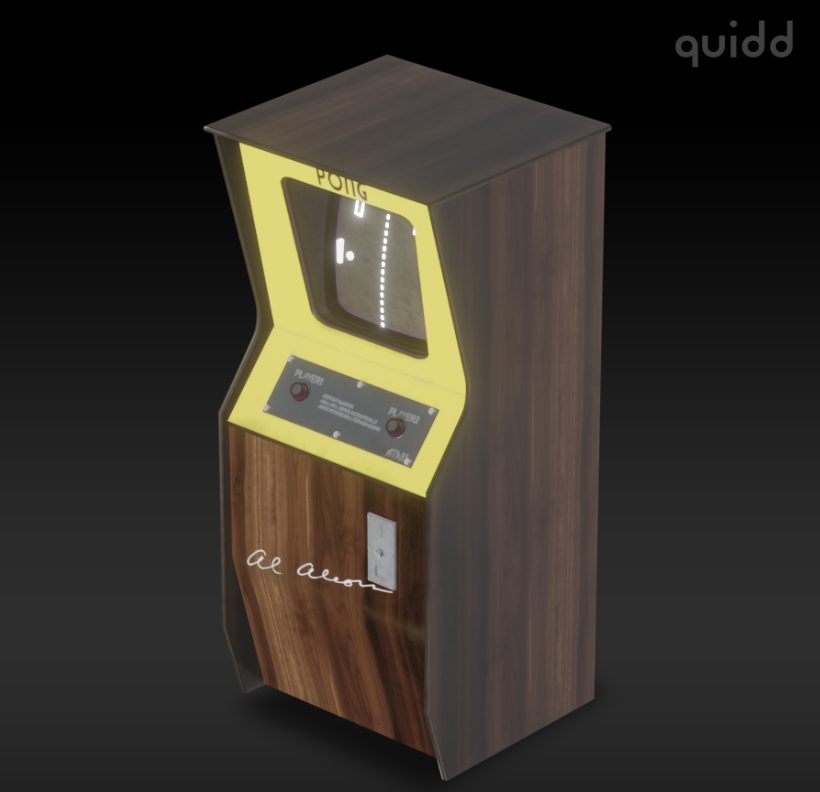
3D Coin-Op Pong Cabinet NFT. Source: Atari Capsule Collection
With the consolidation of NFTs as a means to create in-game markets and economies, players can also expect the increase and growth of play-to-earn games. More and more users will be able to earn and trade cryptocurrencies while gaming and maybe earn enough so they can make a living out of this new profit endeavor.
There are also many variables at stake for the developing and publishing companies.
NFT games will mix both the real and virtual worlds, providing social benefits and experiences alongside the game-related exclusive items. Everything will be about interoperability, where companies will be on the run to find solutions so that one NFT has usability in more than one game or space.
Nevertheless, NFTs are also evolving into a new crowdfunding modality through decentralized launchpads, where developers and entrepreneurs can launch IGO deals searching for suitable investors. Luckily, GamesPad is one of the pioneer launchpads that focuses on games, NFTs, and the metaverse, picking promising projects to become leaders on this tech journey.
While NFTs might play a significant part in the future of gaming, it is still up to the game developers and publishers to decide whether to invest in this blockchain technology or not.
Here is what some of the most famous game developers and platforms have to say about NFT gaming:
Didier Genevois, Ubisoft’s Blockchain Technical Director, told Decrypt the company’s view on creating Quartz, Ubisoft’s NFT platform that allows players to buy NFTs for Ghost Recon Breakpoint, Assassin’s Creed, and Far Cry.
“This experiment is meant to understand how the value proposition of decentralization can be received and embraced by our players. We know it is a major change that will take time”, he explained.
CEO Andrew Wilson thinks that “in the context of the games we create and the live services that we offer, collectible digital content is going to play a meaningful part in our future. So, it’s still early to tell, but I think we’re in a really good position, and we should expect us to kind of think more innovatively and creatively about that on a go-forward basis.”
Interestingly, many fans expect NTF collectibles to be available soon on the newly launched FIFA Ultimate Team game.
CEO Strauss Zelnick said, “we know that people love to collect things. We know that people value rarity. What makes a collectible valuable? An intersection of a perception of an underlying value and quality, and rarity. NFTs can offer that.”
The company has partnered with Forte, a platform that allows the creation of game economies and integration of NFTs through Web 3 and blockchain support.
Games seem to play a critical part in making the metaverse available to the average user audience when foreseeing our digital future. Many players are already used to the concept of virtual reality and digital second life, so it won’t be long until the wider public becomes acquainted with them as well. We are discovering that NFTs might be the missing connection between gaming and other frontiers emerging with the expansion of the metaverse.
Getting to know the games that explore NFT technology today, and discover how they will soon light our way into the new corners of the metaverse.
Axie Infinity is one of the most popular NFT games available right now. Inspired by Pokémon, this title runs on the Ethereum blockchain and uses NFT tech to make the gameplay even better.
It has a play-to-earn model where the players have to collect, breed, and trade Axies, which are NFTs, to gain Smooth Love Potions and later exchange SLP for other Ethereum tokens. Last year, Axie Infinity’s NFT collection value in trades was around $50 million.
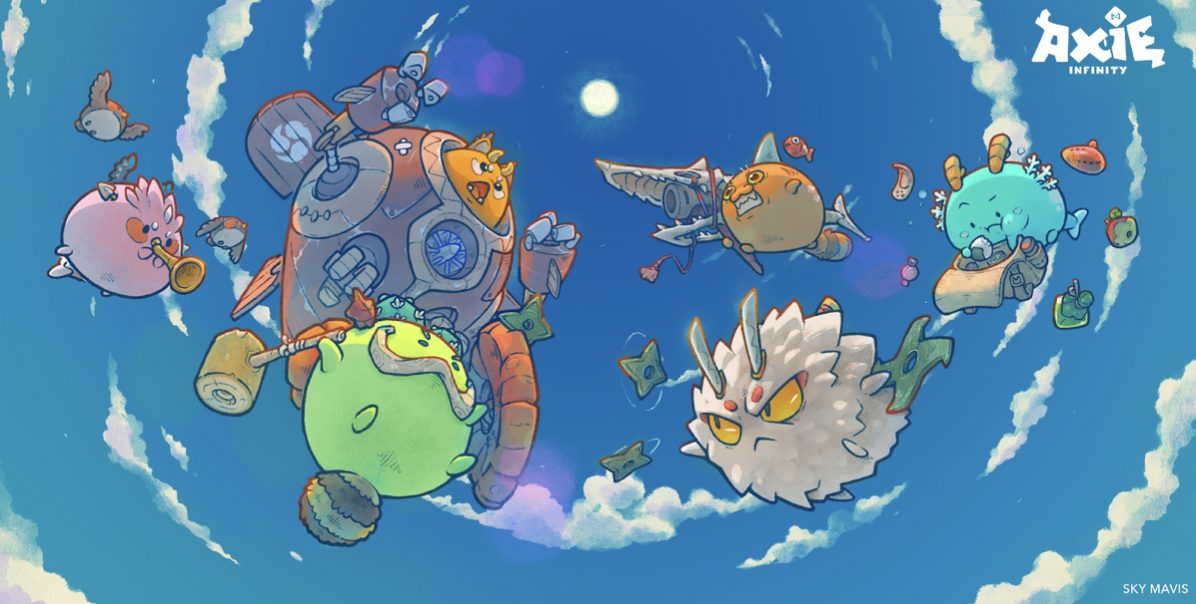
Source: Axie Infinity
CryptoKitties was the first game ever built on the Ethereum network, often seen as the initiative that introduced the concepts of blockchain technology and NFT to the general public.
Players can buy and trade cats or breed them to create unique traits in this game. It is also possible to create a collection of cats and enlist them in catfights. The one-of-a-kind NFT cats can be sold and purchased on popular marketplaces.
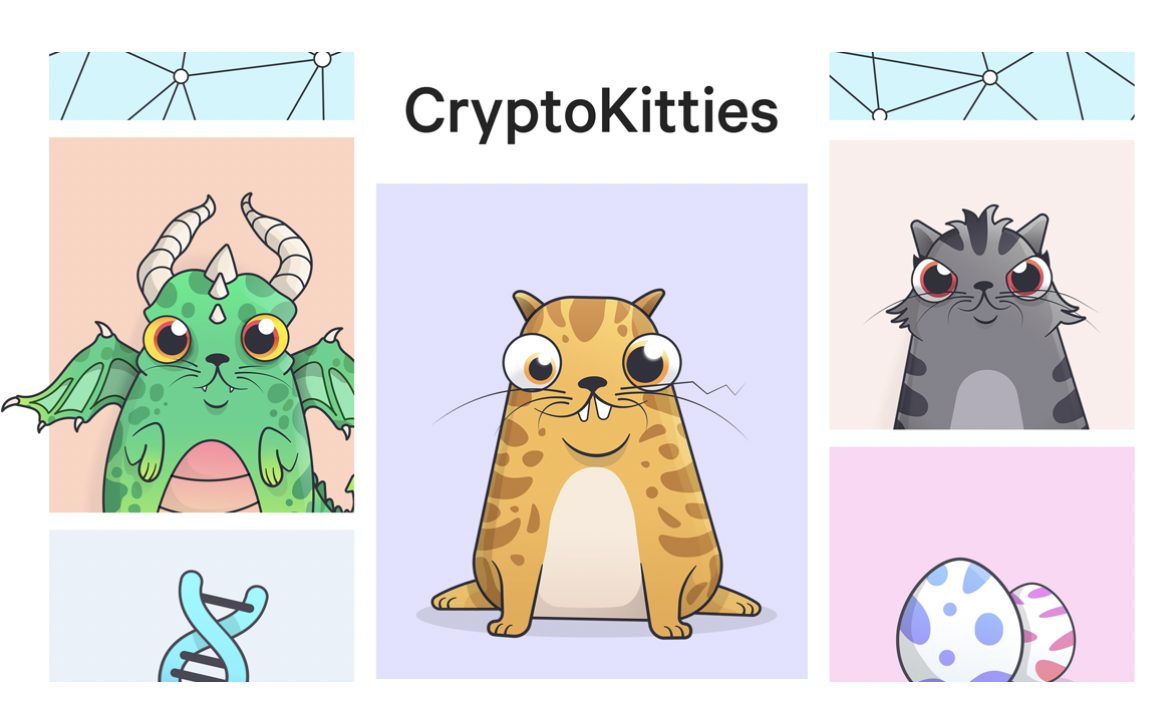
Source: CryptoKitties
Gods Unchained presents a trading card game with a free-to-play and play-to-earn system. It runs on Immutable X and guarantees gas-free transactions in its marketplace.
Besides being the leading NFT game on the trading cards segment, this game has an impressive background as some of its developers come from the classic card game Magic: The Gathering and shows potential to become an esport.
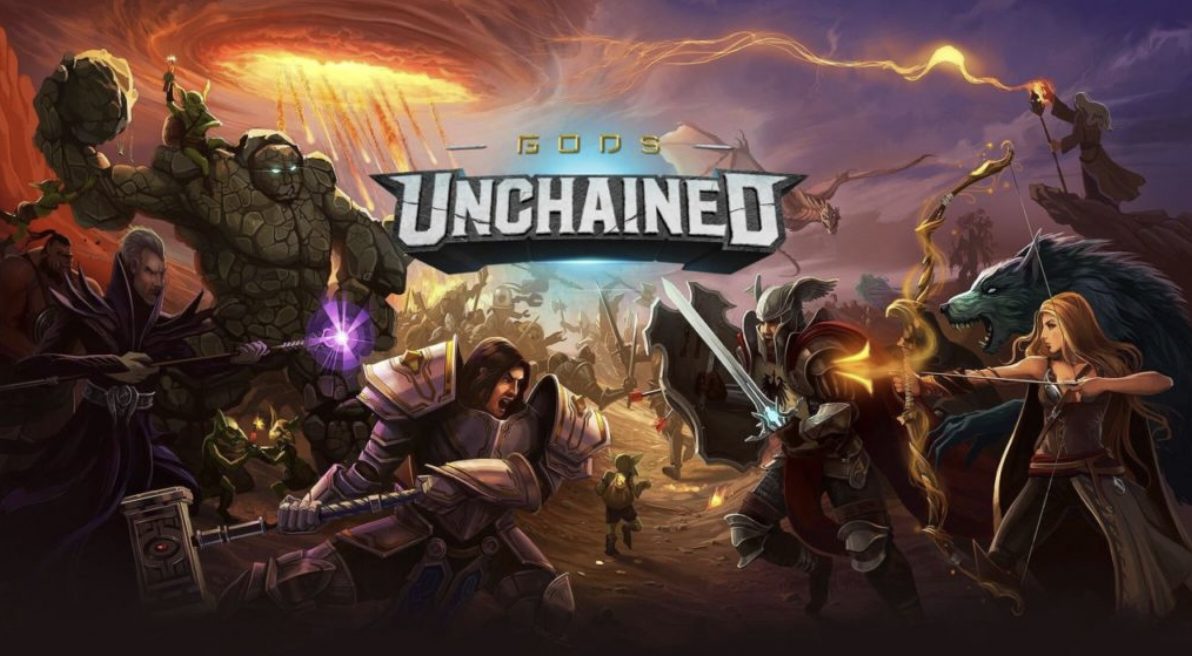
Source: Gods Unchained
Illuvium hasn’t launched yet, but it is already shaking up the cryptocurrency-based gaming world. Built on the Ethereum blockchain, this game will offer an open-world adventure game where users can earn rewards through its P2E mechanism.
Set to attend all the traditional RPG and auto battler genres expectations, Illuvium players will enhance their Illuvials NFTs strength through quests and battle victories.
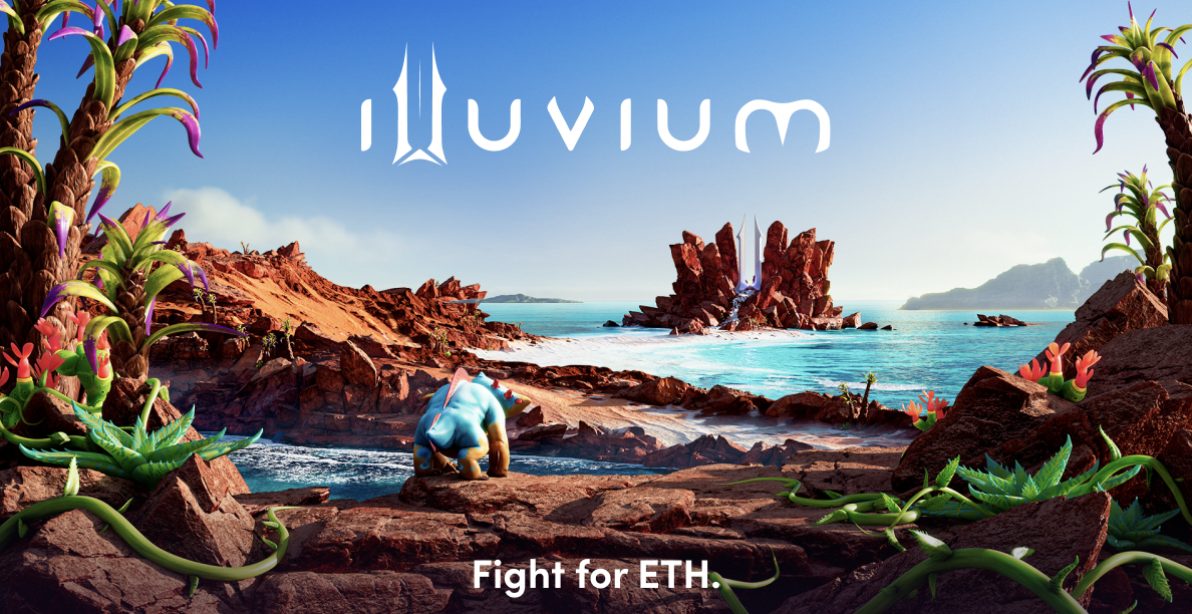
Source: Illuvium
The Sandbox is a virtual world where players can build games, own land, and monetize their overall gaming experience on the Ethereum network. Users can be developers, collectors, or players, roaming around the metaverse and going from one game to another.
Coming from two past mobile game sensations, The Sandbox is rapidly becoming a leader of gaming metaverses, one of the top spaces for users to secure their virtual real estate.
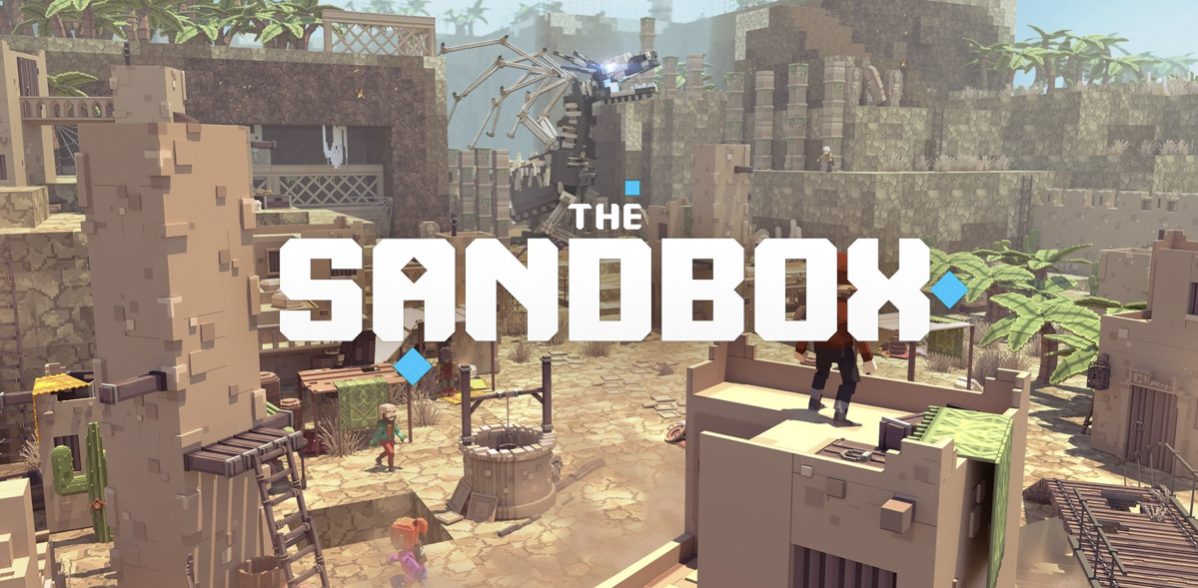
Source: The Sandbox
The above-mentioned NFT games have effectively melded into the gaming business. Gamers enjoy some of their favorite gaming genres while simultaneously partaking at the forefront of the current NFT trend because they’re incredibly interesting and lucrative. With billionaire investors and retail traders becoming more interested in cryptocurrencies, the gaming sector has a lot of room to be developed.